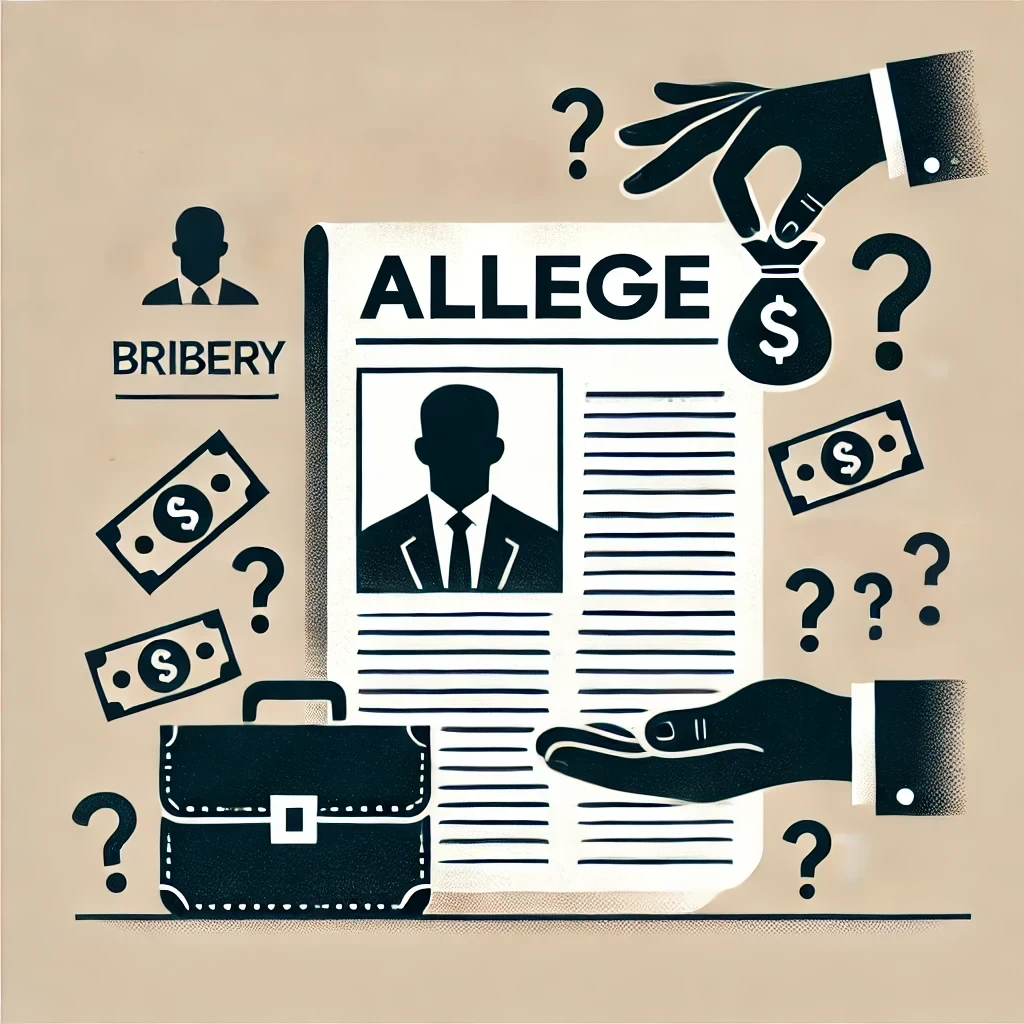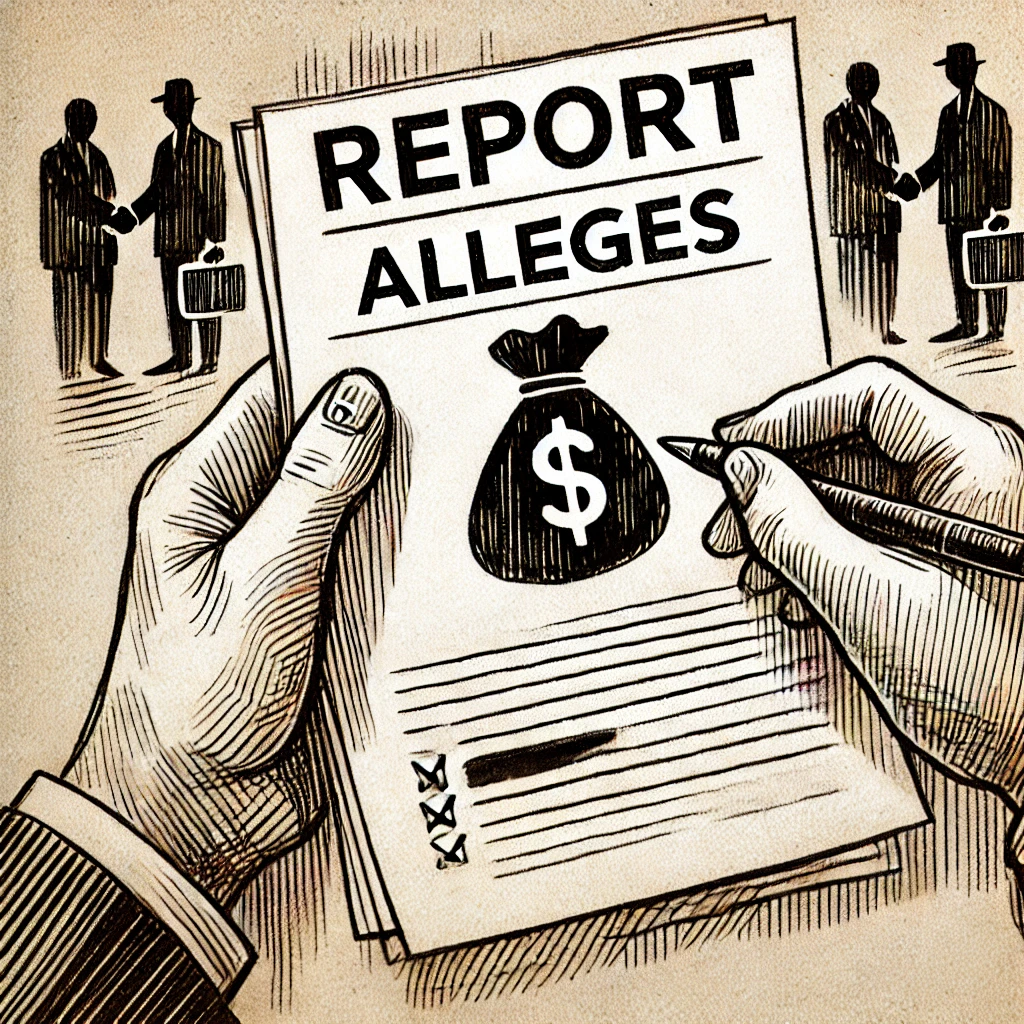Allege
Definition
Allege is a verb meaning to claim or assert that someone has done something wrong or illegal, often without providing proof. It can also refer to the act of declaring something as a fact, typically in legal or formal settings.
Parts of Speech
- Verb
Pronunciation
American and British English
- IPA Pronunciation: /əˈlɛdʒ/
- Respelling: uh-LEJ
Etymology
The word "allege" originates from the Old French "alegier," meaning "to justify or clear at law." It is derived from Medieval Latin "allegare," meaning "to adduce in support," which is based on Latin "allegare," meaning "to bring forward" or "plead in defense." The term entered English in the 14th century with the sense of claiming or asserting something, often in a formal or legal context.
Derivatives
- Allegation (noun)
- Alleged (adjective)
- Allegedly (adverb)
- Alleging (verb, present participle)
- Allegorize (verb, to turn into allegory)
Synonyms
- Claim
- Assert
- Accuse
Antonyms
- Confirm
- Deny
- Disprove
Usage
The verb "allege" is typically used in contexts where a claim is made, often of a legal nature, without conclusive proof. For example, "The prosecutor alleged that the defendant had been at the scene of the crime." It is commonly used in news and legal reports to indicate that a claim has been made but not yet proven.
Related Terms
- Assertion: A confident and forceful statement of fact or belief.
- Accusation: A charge or claim that someone has done something illegal or wrong.
- Indictment: A formal charge or accusation of a serious crime.
Detailed Definitions
Verb
- To claim or assert that someone has done something wrong, typically without proof: Refers to making an accusation or statement in a formal setting without definitive evidence.
- Example: "They allege that he was involved in the conspiracy."
- To declare or claim something as true: Often used in formal, legal, or official contexts when stating a fact that is yet to be proven.
- Example: "The report alleges corruption within the organization."
allege



🇨🇳 Mandarin
- 宣称 (xuānchēng)
- IPA Pronunciation: /ɕɥɛnʈʂʰəŋ/
- Respelling: shwen-CHUNG
🇮🇳 Hindi
- आरोप लगाना (ārop lagānā)
- IPA Pronunciation: /aːrop ləˈɡaːnaː/
- Respelling: ah-ROPE la-GAH-nah
🇪🇸 Spanish
- Alegar (alegar)
- IPA Pronunciation: /aˈleɣar/
- Respelling: ah-LEH-gahr
🇫🇷 French
- Alléguer (alléguer)
- IPA Pronunciation: /a.le.ɡe/
- Respelling: ah-leh-GAY
🇸🇦 Modern Standard Arabic
- يدعي (yadʿī)
- IPA Pronunciation: /jadʕi/
- Respelling: yad-EE
🇧🇩 Bengali
- অভিযোগ করা (ôbhiyog kôrā)
- IPA Pronunciation: /obɦijɔɡ kɔra/
- Respelling: oh-bhee-yohg koh-rah
🇷🇺 Russian
- Утверждать (utverzhdát')
- IPA Pronunciation: /ʊtvʲɪrˈʐdatʲ/
- Respelling: oot-veer-ZHDAHT'
🇵🇹 Portuguese
- Alegar (alegar)
- IPA Pronunciation: /ɐˈleɣaɾ/
- Respelling: ah-LEH-gahr
🇮🇩 Indonesian
- Mengklaim (mengklaim)
- IPA Pronunciation: /məŋˈklɑim/
- Respelling: meng-KLAI-m
🇩🇪 German
- Behaupten (behaupten)
- IPA Pronunciation: /bəˈhauptən/
- Respelling: beh-HOW-ten
🇯🇵 Japanese
- 主張する (shuchō suru)
- IPA Pronunciation: /ʃɯ̥t͡ɕoː sɯ̟ᵝɾɯ̟ᵝ/
- Respelling: shoo-CHO soo-roo
🇻🇳 Vietnamese
- Tuyên bố (tuyên bố)
- IPA Pronunciation: /tʷəj˨˩ən bo˧ˀ˥/
- Respelling: twee-yen boh
🇰🇷 Korean
- 주장하다 (jujanghada)
- IPA Pronunciation: /t͡ɕu.dʑaŋ.ɦa.da/
- Respelling: joo-jahng-hah-dah
🇹🇷 Turkish
- İddia etmek (iddia etmek)
- IPA Pronunciation: /idːia etmek/
- Respelling: id-dee-ah et-mek
🇵🇰 Urdu
- الزام لگانا (ilzām lagānā)
- IPA Pronunciation: /ɪlzɑːm ləˈɡaːnə/
- Respelling: il-ZAHM la-GAH-nuh





